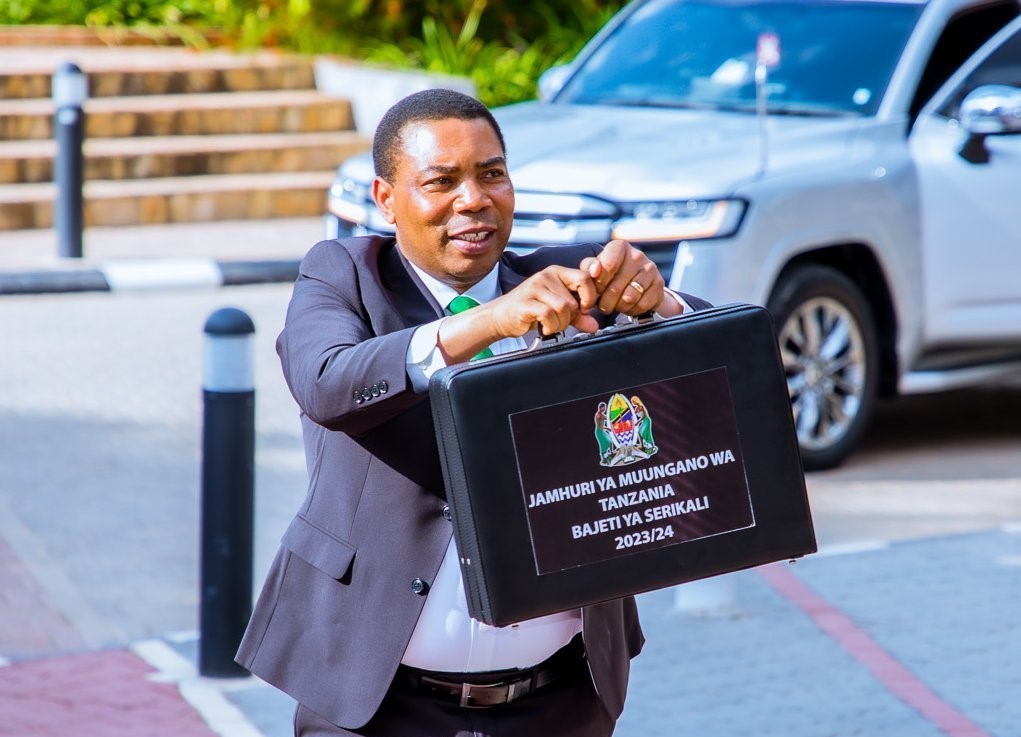Tanzania’s recently announced 2023/24 budget allocations have highlighted the government’s priorities and commitment to driving social development and economic growth. With significant investments in key sectors, the country is poised to unleash its potential, leading to far-reaching impacts on the economy, the average Tanzanian, and global competitiveness. Let’s go into the implications and offer a perspective on these allocations.
Tanzania’s Economy
Igniting the Engine of Progress the budget’s emphasis on allocating substantial funds to education, works, transport, communications, energy, health, agriculture, and water highlights the government’s recognition of these sectors as critical drivers of economic development.
By investing TZS 5.95 trillion in education, the government aims to nurture a skilled workforce, equipping Tanzanians with the tools they need to contribute meaningfully to the country’s growth. Just as a well-tuned engine propels a car forward, investment in education fuels Tanzania’s economic advancement, propelling it towards a brighter future.
Empowering Lives, Uplifting Communities Allocations in works, transport, communications, energy, health, and agriculture have direct implications for the average Tanzanian, enhancing their quality of life and creating opportunities for socio-economic upliftment.
Investments of TZS 3.84 trillion in works, transport, and communications improve infrastructure, leading to enhanced connectivity and smoother transportation networks. This translates into increased accessibility to markets, education, healthcare, and employment opportunities, positively impacting the daily lives of Tanzanians.
Just as well-maintained roads connect distant towns, these budget allocations connect Tanzanians to a better quality of life, linking them to opportunities and creating pathways to prosperity.
Global Economy Competition and Country Dependency
Shaping Tanzania’s Standing as Tanzania invests significantly in sectors like energy, agriculture, and water, it lays the groundwork for long-term competitiveness in the global economy.
By dedicating TZS 3.04 trillion to the energy sector, the government aims to boost production, drive industrial growth, and attract foreign investments. This not only strengthens Tanzania’s economic resilience but also positions it as an attractive destination for global partnerships.
Additionally, investments in agriculture and water bolster food security, reduce dependency on imports, and contribute to self-sufficiency, promoting economic stability and reducing vulnerability.
Just as a sturdy ship sails confidently in international waters, Tanzania’s strategic investments bolster its competitive standing, reducing reliance and shaping its destiny in the global economy. Tanzania’s budget allocations for the 2023/24 fiscal year demonstrate a strategic and forward-thinking approach to socio-economic development.
By prioritizing key sectors, the government paves the way for progress, creating a fertile ground for economic growth, empowering individuals, and positioning Tanzania as a competitive player in the global arena.
As these investments take root and bear fruit, they hold the potential to propel the nation towards a prosperous future, where the economy thrives, the average Tanzanian flourishes, and Tanzania stands tall in the face of global challenges. Keeping a way forward, just as a gardener tends to a seedling, nurturing it with care and attention, Tanzania’s budget allocations plant the seeds of prosperity, promising a bountiful harvest for all its citizens.
Navigating Challenges: How to Overcome Hurdles to Foster Sustainable Development
While Tanzania’s allocated budgets for key sectors hold immense potential for driving development and progress, it is crucial to recognize the challenges that may hinder the effective implementation and utilization of these funds.
Let’s explore the challenges faced in the allocated budgets for the prioritized sectors and consider strategies for overcoming them.
Ensuring Quality and Access for All Challenge: One of the primary challenges in the education sector lies in providing quality education and ensuring equitable access for all Tanzanians.
Insufficient educational infrastructure, shortage of qualified teachers, and disparities in educational resources between urban and rural areas pose significant hurdles. Additionally, addressing the digital divide and incorporating technology in education remains a challenge, particularly in remote regions.
Strategy: To address these challenges, the government should focus on building and upgrading educational infrastructure, recruiting and training qualified teachers, and improving the availability of educational resources in underserved areas. Embracing technology and implementing digital learning initiatives can help bridge the gap and enhance access to quality education for all Tanzanians.
Works, Transport, and Communications: Enhancing Connectivity and Infrastructure Challenge
The sector faces challenges in developing and maintaining an efficient transport network and modern communication systems. Insufficient funding for infrastructure development, inadequate maintenance, and limited access to remote regions impede progress. Furthermore, ensuring affordable and reliable connectivity in rural areas remains a challenge.
Strategy: Prioritizing investments in infrastructure development, including road networks, ports, and airports, is crucial to improve connectivity and facilitate economic growth.
Collaborating with private sector partners to leverage their expertise and resources can help overcome funding limitations.
Expanding internet connectivity in rural areas through innovative approaches such as public-private partnerships and leveraging emerging technologies will bridge the digital divide and promote inclusive development.
Energy: Meeting Growing Demand and Promoting Sustainability Challenge
Tanzania faces challenges in meeting the increasing demand for energy while transitioning towards sustainable and renewable sources. Insufficient energy generation capacity, limited access to electricity in rural areas, and inadequate transmission and distribution infrastructure hinder progress.
Balancing economic growth with environmental sustainability remains a challenge.
Strategy: Diversifying the energy mix by investing in renewable sources such as solar, wind, and hydropower can address the challenge of meeting energy demand sustainably.
Expanding access to electricity in rural areas through decentralized energy solutions, micro grids, and off-grid systems is crucial. Strengthening transmission and distribution infrastructure, promoting energy efficiency, and implementing supportive policies and incentives will drive the transition towards a sustainable energy future.
By recognizing these challenges and implementing effective strategies, Tanzania can navigate the roadblocks and create an enabling environment for sustainable development, equitable access, and inclusive growth.
To align the development well, Just as a skilled navigator charts a course through rough waters, Tanzania’s ability to overcome these challenges will determine its success in harnessing the potential of allocated budgets, leading to a future where quality education, efficient infrastructure, and sustainable energy drive the nation towards prosperity.
For more article, read here.

